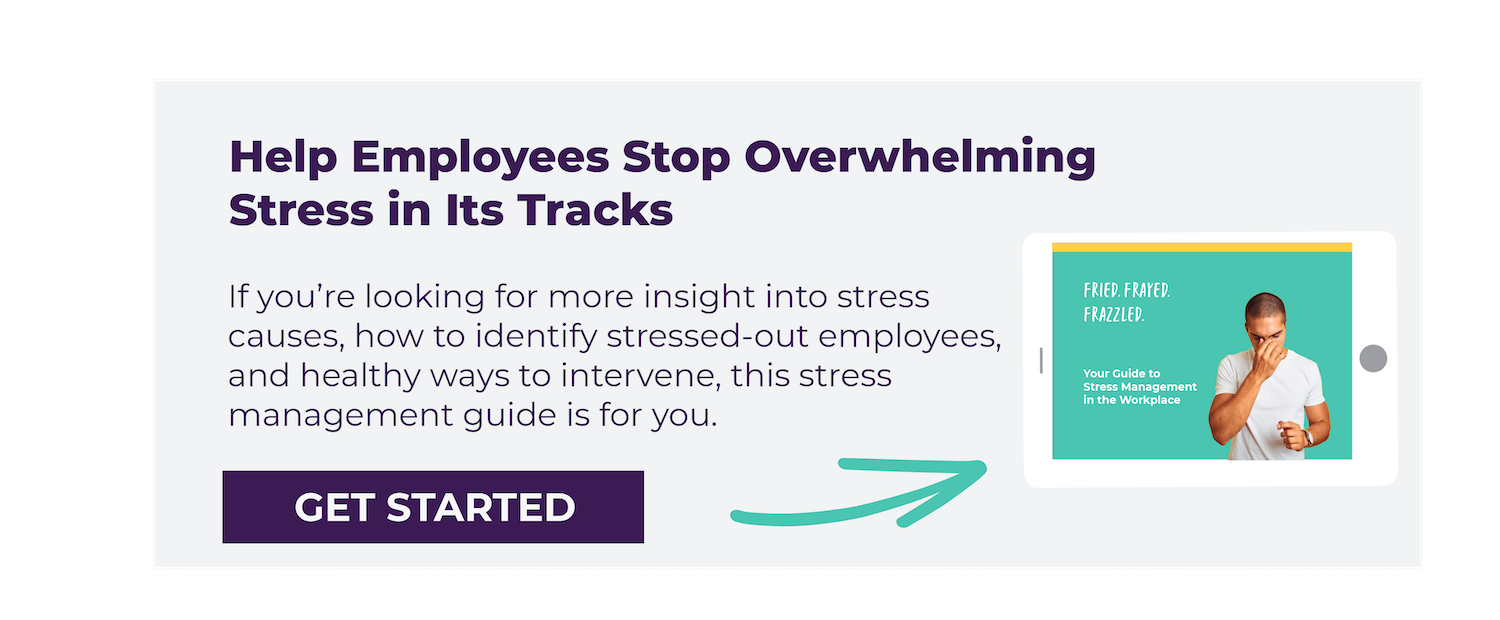How good are you at knowing how to handle stressful situations at work?
Learning how to appropriately manage your workplace stress can make all the difference when it comes to your health, mental state, and productivity. No matter how much you love your job or what you do, there is always going to be a certain amount of stress that comes with it.
In the workplace, stress can come at you from all angles. Whether it’s an angry client, an awkward colleague conversation, or making a mistake on a big project, mounting stress that’s not taken care of can lead to physical and mental health concerns.
If you’re looking for some better ways to handle stress, we’ve got your back.
Check out these tips below for tackling stressful situations at work.
How to Best Handle Stressful Situations at Work
No job is without some amount of stress. But ongoing stress can be a problem. Working hard and overworking at the expense of your personal health should never be confused. If your workplace is becoming toxic or your job has too many stressful elements regularly, it’s time to step back and make sure your physical and emotional health are still intact.
Sources of work stress include:
- Low salaries
- Lack of support
- Harassment
- Unchallenging work
- No growth opportunities
- Toxic working environment
- No control over job-related decisions
By taking steps to manage stressful situations at work, you empower yourself to make better decisions to respond appropriately. It also gives you an opportunity to ensure you stay well — both mentally and physically — when you take notice of what stresses you out at work.
Here are seven tips to handle work stress:
Tip #1: Remain Calm
Whether you just got chewed out by your boss, a customer, or a colleague, it’s never helpful to respond back with anger or negativity. Instead, do your best to remain calm by taking a deep breath and counting to five in your head. When someone is upset and yelling at you, it’s best to actively listen and then quietly respond by first acknowledging you heard what was said. Then you can make a calmer decision of whether to respond in-depth, ask for a minute, or ask to reconvene at another time.
Tip #2: Exercise at Lunch
If your day seems to be pulling you down, it may be time to get up and move around. Make it a point to walk away from your work pile (yes, it may seem counterintuitive, but your brain needs breaks, too!) and enjoy your lunch. Whether you walk to your favorite lunch spot, take a jog around the block, or simply stretch, your body will release endorphins to lift your mood and your energy to better deal with stress. Removing yourself from your workspace to do your exercises can put physical and mental distance between you and your stress, which is sometimes the much-needed mini break you need to reset.
Tip #3: Stand Up For Your Needs
Most good bosses know that your life doesn’t revolve around work. If you have personal issues to take care of, give your leadership ample time (when possible) to let them know you need to handle personal business. Don’t keep pushing off doctor appointments, visiting a sick relative, skipping caregiving meetings, etc. When you ignore, skip, or avoid your outside-of-work obligations, you’re more likely to feel overwhelmed and get burned out at work. Ask for what you need.
Tip #4: Don’t Overcommit Yourself
If your loyalty and strong work ethic are well-known, others may also try to recruit you for wellness committees, volunteer projects, work projects, etc. Look at your calendar and also ask yourself if you want to dedicate time to whatever it is someone is asking you to do. Only add activities to your plate if you really want to do them, not because it feels like an obligation.
Tip #5: Develop Healthy Boundaries
Let people know where you stand and what they can expect from you. If a colleague is bullying you into doing their workload, it’s important to respond in a way that lets them know you’re not going to accept the workload. Helping out occasionally is kind, but don’t let yourself be taken advantage of by a colleague. Be direct and tell them that your plate is full and you can help them on X or Y, but not the whole project. If it becomes too much of a regular occurrence, speak to your manager about your concerns.
Tip #6: Invest in Self-Care
Self-care is non-negotiable if you want to stay well. In fact, it’s essential during stressful times to keep yourself a priority. Otherwise, your immune system can plummet, leaving you vulnerable to illness. Take time throughout the work day to spend a few moments tending to your needs. That means making sure you’re eating healthy throughout the day, getting up to stretch, taking your breaks as needed, and connecting with colleagues.
Tip #7: Relax…On the Job
Don’t take everything so seriously. While it’s important to do your best and strive for excellence, it’s also important not to get too wound up that you’re not enjoying what you do. Explore techniques like deep breathing, meditation, and mindfulness to help take the pressure off. Doing so can help you alleviate stress and not take yourself so seriously.
Cope With — Don’t Avoid — Stress at Work
As tempting as it may be, simply avoiding stress won’t work. No matter how cushy your job, how much you love your work, and how easy your colleagues are to get along with, stress can and will pop up. For those in high-demand jobs, it’s even more essential to ensure you’re finding healthy ways to manage your workplace stressors.
Workplace stress doesn’t simply disappear once you clock out. Unresolved conflicts, looming deadlines, and mounting workplace pressures all still exist and may intrude on your time off if you let it.
Finding healthy ways to deal with your stress like asking for help, relaxing, and taking breaks can help you deal with the stress on the job in a more efficient way. Investing in your self-care routines outside of work on a regular basis can also help keep mental health issues like anxiety, depression, and sleeping issues at bay.
Left unchecked, stress will bombard your body, impact your work, productivity, and more. These tips are just the beginning of ways you can better learn how to handle stress at work. Adapt and use what works; ditch what doesn’t work. You’ll eventually find with regular intentional moves that you can keep work feeling more enjoyable and less stressful.
What are some ways you do with stressful work situations? Share your thoughts below!



